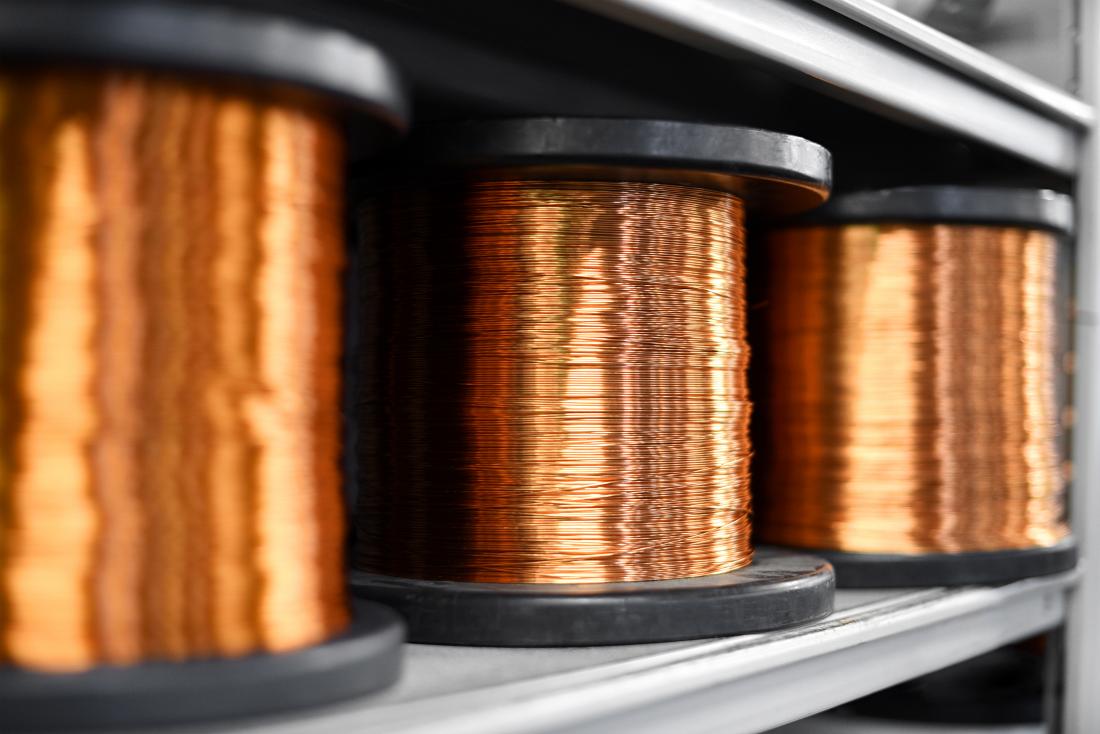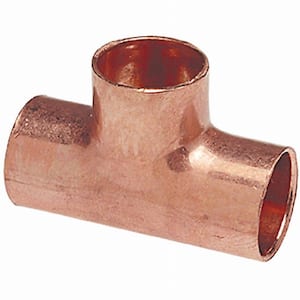Exploring the Diverse Applications of Copper Products in Modern Industries
Copper products have established themselves as indispensable parts throughout a myriad of contemporary markets, primarily as a result of their remarkable conductivity, pliability, and resistance to rust. From boosting the efficiency of electric systems to playing a vital function in renewable resource innovations, the adaptability of copper is apparent. Furthermore, its recyclability settings it as a sustainable choice in production and electronic devices. As sectors significantly prioritize innovation and sustainability, the diverse applications of copper require a closer exam, particularly regarding their prospective influence on future environmental techniques and technological innovations.
Electric Applications of Copper
Copper is a crucial product in the electrical sector, accounting for roughly 60% of the total need for non-ferrous steels worldwide - Copper Products. Its remarkable electric conductivity, which is nearly two times that of light weight aluminum, makes it the recommended choice for a vast array of electric applications. From circuitry systems in business and household structures to high-voltage power transmission lines, copper makes certain effectiveness and reliability in electrical energy shipment
Along with wiring, copper is integral to the manufacturing of electric components such as motors, generators, and transformers. These parts leverage copper's thermal conductivity and pliability, essential for warm dissipation and effective efficiency. Copper's resistance to corrosion boosts the lifespan and resilience of electrical systems, making it an affordable solution in the lengthy term.
The development of renewable energy sources, such as solar and wind power, has actually better increased the need for copper in electric applications. As markets transition towards lasting energy services, copper's duty becomes also extra crucial. Overall, the adaptability and efficiency attributes of copper strengthen its condition as a foundation product within the electrical industry, driving technology and effectiveness across numerous applications.
Pipes and Piping Solutions
In modern plumbing systems, the choice of materials dramatically affects both capability and durability. Copper has actually arised as a favored alternative due to its special buildings, including rust resistance and antimicrobial attributes. These features make sure that copper piping continues to be long lasting and risk-free for transporting safe and clean water, a vital factor to consider in household and industrial applications.
One of the essential advantages of copper in pipes is its capability to hold up against heats and pressures, making it appropriate for a selection of applications, from warm water systems to heating and cooling networks. Furthermore, copper's flexibility permits for simpler installment in complex piping layouts, lowering the danger of failings and leakages.
Another noteworthy advantage is copper's long lifespan, often surpassing half a century with correct maintenance. This longevity not only minimizes replacement prices but additionally adds to lasting techniques by decreasing waste. Copper's recyclability straightens with contemporary ecological criteria, promoting a circular economic situation within the pipes industry.
Copper in Renewable Resource
The flexibility of copper prolongs beyond pipes applications, playing an essential role in the eco-friendly power field. In solar panels, copper is used in photovoltaic cells and wiring, assisting in efficient energy conversion and transmission.

Additionally, as the global demand for electric automobiles (EVs) rises, copper's duty in battery systems and charging facilities ends up being much more substantial. The material's ability to perform power successfully is integral to the efficiency of EV batteries, boosting range and billing rate.
Copper's Function in Electronics
Electronics manufacturing relies greatly on copper's remarkable buildings, particularly its high electric conductivity and thermal performance. These attributes make copper an optimal choice for a variety of electronic parts, consisting of connectors, motherboard, and circuitry. The metal's capability to efficiently send electrical signals ensures marginal energy loss, which is vital in high-performance electronic tools.
Additionally, copper's thermal conductivity plays a significant duty in heat dissipation, shielding delicate elements from overheating. This is especially essential in modern-day electronics, where portable layouts result in raised warm generation. Copper is also preferred for its pliability and ductility, allowing it to be easily formed right into complex layouts that satisfy the needs of innovative electronic applications.
With the surge of consumer electronics, telecoms, and electric click this site cars, the demand for copper in the electronic devices sector continues to expand. As developments in innovation develop, copper continues to be essential to attaining greater performance and dependability in digital items. Its recyclability further improves its allure, as manufacturers seek sustainable options without jeopardizing high quality. Hence, copper remains a foundation product in the ever-expanding area of electronic devices.
Innovative Uses in Manufacturing

One significant application is in additive production, where copper-based materials are used in 3D printing procedures. This permits the development of intricate geometries and light-weight components, specifically in the aerospace and vehicle sectors. In addition, copper's thermal conductivity makes it an optimal selection for warm exchangers, boosting performance in industrial air conditioning systems.
Furthermore, the surge of smart production has actually seen the unification of copper in IoT tools, where its conductive capabilities sustain sophisticated noticing modern technologies. In the world of renewable resource, copper is pivotal in the manufacturing of photovoltaic panels and wind read the full info here turbines, assisting in more effective energy conversion and distribution.
As markets make every effort for sustainability and innovation, copper's adaptability and efficiency continue to position it as an important product, driving developments in production and adding to the growth of smarter, more reliable products.
Conclusion
The important duty of copper in sustainable energy and its essential function in electronics emphasize its significance in advancing lasting practices. Jointly, these applications highlight copper's essential payment to technical development and industrial effectiveness in modern society.
From enhancing the performance of electric systems to playing a vital function in sustainable power innovations, the flexibility of copper is evident. As sectors progressively prioritize development and sustainability, the diverse applications of copper warrant a closer exam, especially regarding their possible effect on find here future technological innovations and ecological methods.
The growth of eco-friendly energy resources, such as solar and wind power, has further boosted the demand for copper in electric applications. In general, the convenience and efficiency attributes of copper solidify its condition as a cornerstone product within the electric industry, driving technology and efficiency throughout different applications.
The convenience of copper prolongs past plumbing applications, playing a crucial duty in the renewable energy industry.